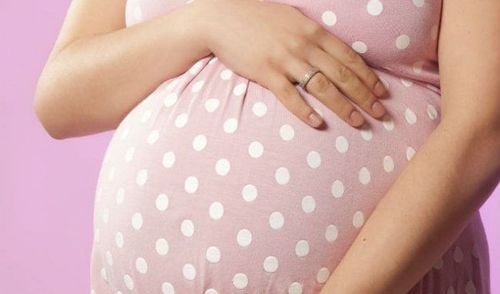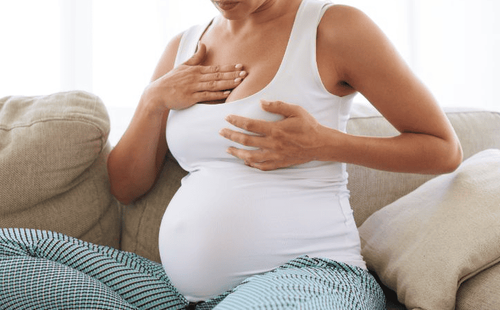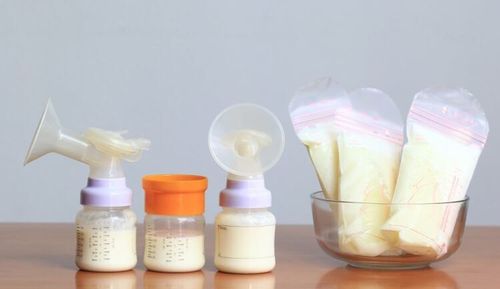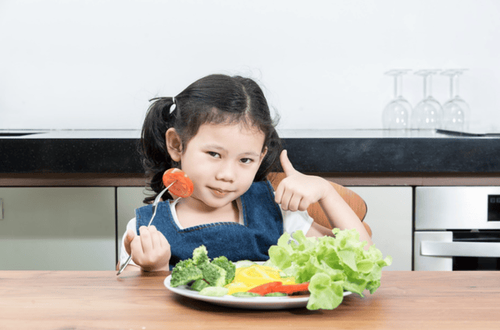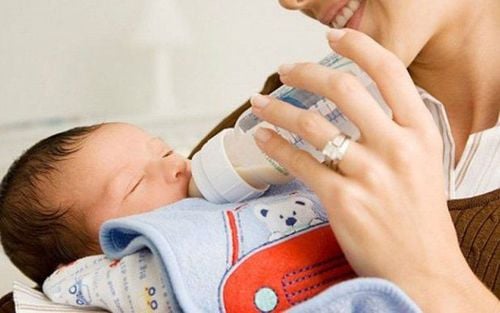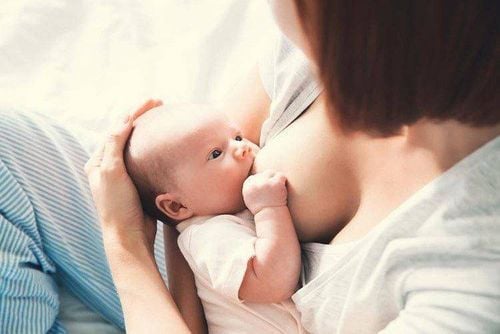This is an automatically translated article.
The article is professionally consulted by Master, Doctor Huynh Bao Toan - Department of Pediatrics - Neonatology - Vinmec Nha Trang International General Hospital.Because formula milk is not like natural breast milk, in order to get a cup of formula for a baby, it requires the mother to be meticulous and careful right from the selection of milk and bottles to how to properly mix the milk. In addition, some mothers also reheat prepared formula for their babies. Will this affect the quality of milk or not?
1. How to store prepared formula
Mothers can apply the following preservation methods if you want to prepare formula milk for the next feeding, or in case you have to go out with your baby for a long time, need to prepare ready-made formula:Mothers should preserve milk In the refrigerator immediately after making the milk to avoid bacterial contamination of milk, do not have to store milk after the baby has suckled and has leftover milk. Bacteria will grow more slowly than leaving milk outside, besides it can be preserved longer, up to 24 hours later, so it is recommended to store milk in the refrigerator. and put in a freezer bag with ice inside to preserve if mother and baby have to go away for a few hours. Babies can use this milk within 4 hours. Besides, to be able to easily mix with hot water in the thermos along with the purified water bottle to bring, you can bring a small box of baby formula.
2. Can reheated formula be reheated?
Usually, you don't need to warm baby formula. Because some babies like to drink milk at room temperature or maybe a little lower. When you give your baby whole milk, you don't need to warm it up, you just need to take it out of the fridge a certain amount of time before your baby drinks it.If your baby is used to needing to warm up the bottle of formula before use, You can warm up the prepared formula by placing the bottle in a bowl of warm water for a few minutes or warming the bottle under running water. . Just warm the milk, don't overheat.
Do not put pre-mixed bottles in the microwave. Because milk can heat unevenly, creating hot spots that can burn your baby's mouth.
You should discard any remaining formula after feeding your baby if the formula has been mixed for more than 1 hour. It is also not necessary to store the bottle after the baby has drunk it because bacteria from the baby's mouth can still grow in the refrigerator.
Mothers should label clearly the date and time of making milk so that they can ensure the safest for the baby's health right after storing the milk. Mothers should also note the following when warming baby formula:
With infant formula stored in the refrigerator, it is not necessary for mothers to heat it, but only needs to be taken out for about 1 hour to can reach room temperature or warm milk by placing it in a hot water bottle or bottle warmer. Never use a microwave to warm milk. Remember to check the temperature of the milk before you feed your baby so you can be sure it's not too hot once it's warmed up.
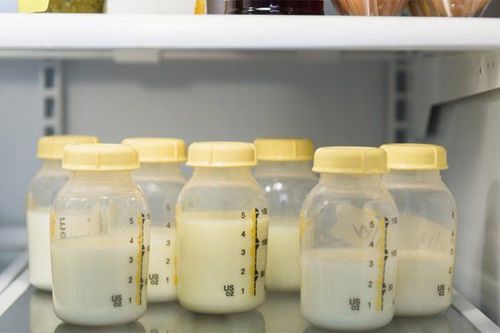
3. How long does reheated formula last?
For babies who are exclusively breastfed, when they ask for food, they often enjoy the mother's hot milk. The same goes for babies who use formula milk, after the milk is mixed in the correct ratio, the mother needs to feed the baby immediately. Use a milk incubator with limited cases, when the whole family has to go out.According to nutritionists, warmed milk can only last up to 2 hours. Mothers should discard or let their loved ones drink all of the milk if there is leftover milk, according to doctors, it is not advisable to save it for later because the milk contains the baby's saliva, the milk can be invaded by bacteria. Therefore, to avoid overmixing of milk, mothers need to carefully monitor the amount of milk the baby needs in each stage.
4. Some risks when using heated bottles
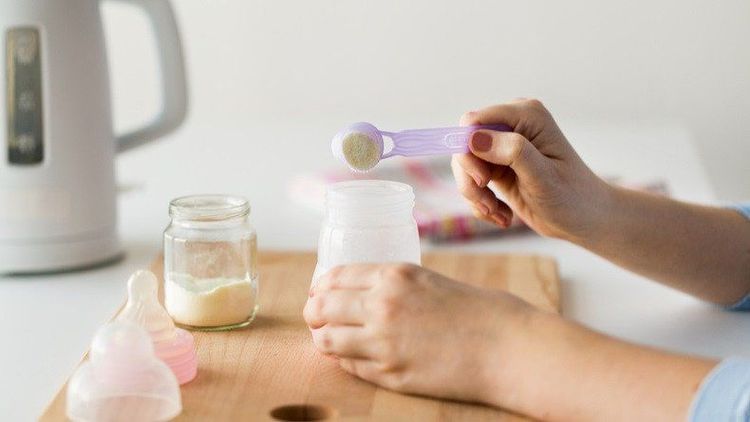
Do not heat formula in a microwave: Microwave-warmed formula can cause burns, so absolutely milk should not be warmed with this appliance. Microwaves heat food unevenly, which can burn your baby's mouth. Although many parents use the microwave to warm the bottle, then shake the bottle vigorously and test the milk before giving it to the baby, this is still not safe for the baby. Instead of using a microwave, use a bottle warmer or some warm water to reheat prepared milk. The harmful effects of BPA: BPA stands for bisphenol A, a chemical that has been used since the 1960s in the manufacture of many hard plastic food containers, including baby bottles, toys, and pacifiers. .When reheating or boiling food (including water, baby formula or other liquids) in plastic containers, the food will come into direct contact with BPA, then BPA will gradually seep into the foods. this. Since 2008, the use of BPA in baby bottles has fallen out of favor with manufacturers, as BPA has been linked to certain cancers and disrupted brain development. nervous system and reproductive system (including early onset of puberty). In 2013, the FDA supported ending the use of BPA-based epoxy resins in the liners of formula milk cartons. The FDA recommends using BPA-free bottles for boiled water. Then let the temperature of the water gradually decrease and then mix the baby formula.
Scratched baby bottles and other food containers should not be used, as scratches in the plastic can harbor germs and release small amounts of BPA (if they are used for food). Check the label on the bottle and the container for the recycling code at the bottom. In general, plastics marked with recycling codes 1, 2, 4, 5, and 6 are generally BPA-free. Some (but not all) plastics marked with recycling code 3 or 7 may be made with BPA. The Pediatrics Department at the Vinmec Health System hospitals is the address for receiving and examining all the diseases that infants and young children are susceptible to. With modern equipment, sterile space, minimize the impact as well as the risk of disease transmission. Along with that is the dedication from the doctors with professional experience with pediatric patients, making the examination no longer a concern of the parents.
Please dial HOTLINE for more information or register for an appointment HERE. Download MyVinmec app to make appointments faster and to manage your bookings easily.





